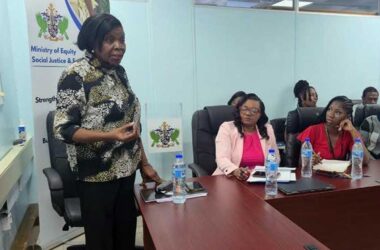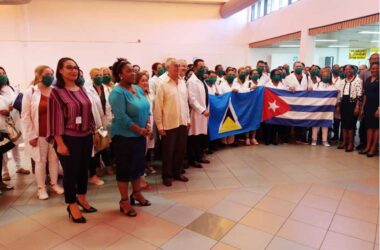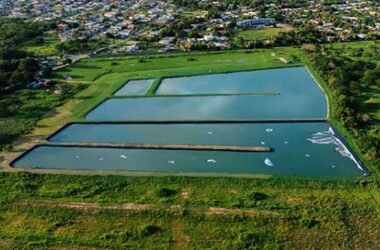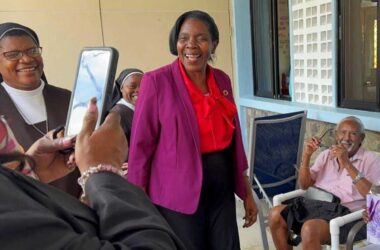Member States seek to develop data collection and analysis skills.
THURSDAY, April 20, 2017 — The Organisation of Eastern Caribbean States (OECS) officially launched its Regional Strategy for the Development of Statistics (RSDS) on April 11th 2017 at the Fort Young Hotel in Roseau, Dominica under the theme “Revolutionising our Statistics; Developing our Societies.” The OECS RSDS is funded by the World Bank and seeks to develop the statistical capacity of OECS Member States.
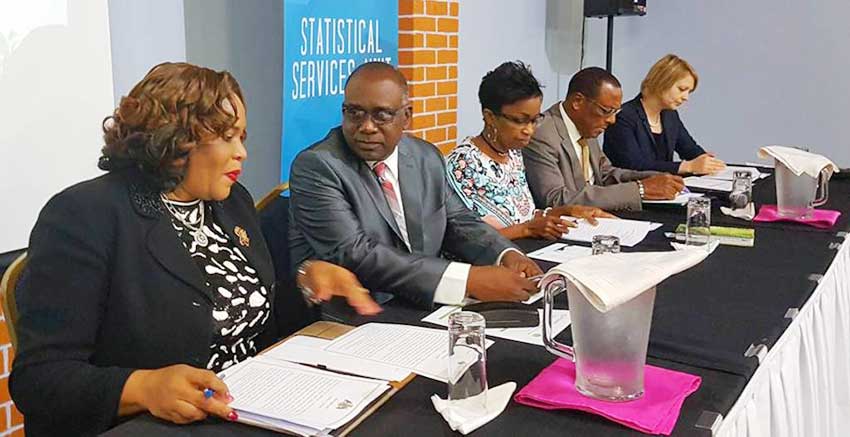
Designed to be implemented over a 14-year period, from 2017 to 2030, the OECS RSDS focuses on five strategic priorities:
1. Design and formalise the OECS Regional Statistical System;
2. Consolidate and fortify the National Statistical Systems;
3. Join and respond to the data revolution;
4. Extract insights and share knowledge; and
5. Trumpet and value official statistics.
Hon. Oliver Joseph, Minister of Economic Development, Trade, Planning, Cooperatives and International Business for Grenada, delivered the feature address. As a member of the OECS Economic Affairs Council (EAC), Minister Joseph described the rationale for the EAC’s endorsement of the OECS RSDS and emphasised the need for the RSDS to be aligned with the 2030 Agenda for Sustainable Development Goals.
The Agenda is a plan of action that “calls for all countries and all stakeholders to act in collaborative partnership to implement this plan, and to take the bold and transformative steps that are urgently needed to shift the world onto a sustainable and resilient path.”
The EAC decisions are as follows:
1. Endorse the regional approach to statistical development;
2. Provide guidance with respect to enhancing the scope and usefulness of the OECS RSDS;
3. Endorse the draft OECS RSDS 2017 to 2030 as the tool to determine and schedule the statistical requirements for economic, social, human and environmental development;
4. Measure development and integration progress of the OECS Economic Union – nationally and regionally;
5. Agree on the use of the OECS RSDS as a tool to provide guidance to measure progress toward the achievement of the 2030 Agenda for Sustainable Development Goals;
6. Endorse the OECS RSDS Steering Committee as the body to direct and oversee the design and implementation of the OECS RSDS; and
7. Agree to the establishment of national governance arrangements for official statistics.
His Excellency Sydney Osbourne, OECS Commissioner and CARICOM Ambassador for St. Kitts and Nevis, also addressed the gathering and stressed the importance of comparable statistics for the Economic Union, noting in particular the role to be played by the National Statistical Offices.
“Without your input, contributions, support and commitment to this process, this event and what it signifies would not be possible. Your role in this effort cannot be understated,” Ambassador Osbourne said.
Head of the Statistical Services Unit at the OECS Commission, Dr. Gale Archibald, presented an overview of the OECS RSDS and outlined the need to implement governance arrangements that ensure the transparency and accountability of the strategy.
Yevgniya Savchenko, Economist at the World Bank, traced the chronology of events that led to this milestone and expressed the Bank’s intension to continue its support for statistical development in the OECS Member States. Ms. Savchenko highlighted successes such as support to Member States to transition from paper-based to computer-aided personal interviews and the provision of training in micro data documentation.
The launch was followed by the First Meeting of the OECS RSDS Steering Committee on April 12, 2017. This meeting reviewed the RSDS implementation plan and its phased activities, as well as Member States’ reporting requirements. The Eastern Caribbean Central Bank (ECCB) was nominated as the Chair of the Steering Committee and will hold the position for one year.
Attendees included heads of OECS Member States’ National Statistics Offices, social and economic planners, public sector officials from Dominica, development partners such as the United Nations Development Programme (UNDP), the Caribbean Development Bank (CDB), the ECCB and staff of the OECS Commission.
These events were funded by the World Bank under the OECS Statistical Capacity Building and Implementation of the OECS Regional Strategy for the Development of Statistics project.






![Amy Stephen [Photo credit: Community Tourism Agency]](https://thevoiceslu.com/wp-content/uploads/2026/01/Amy-Stephen-feat-380x250.jpg)


